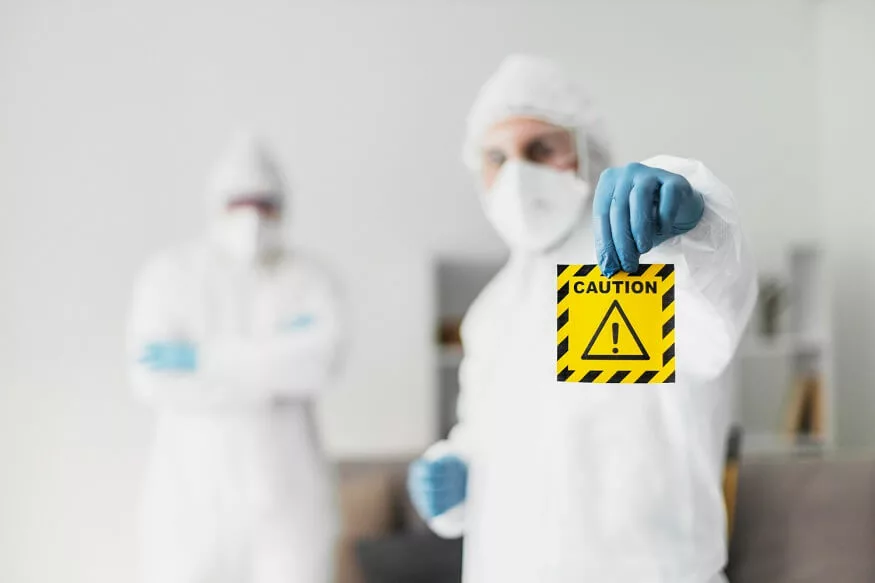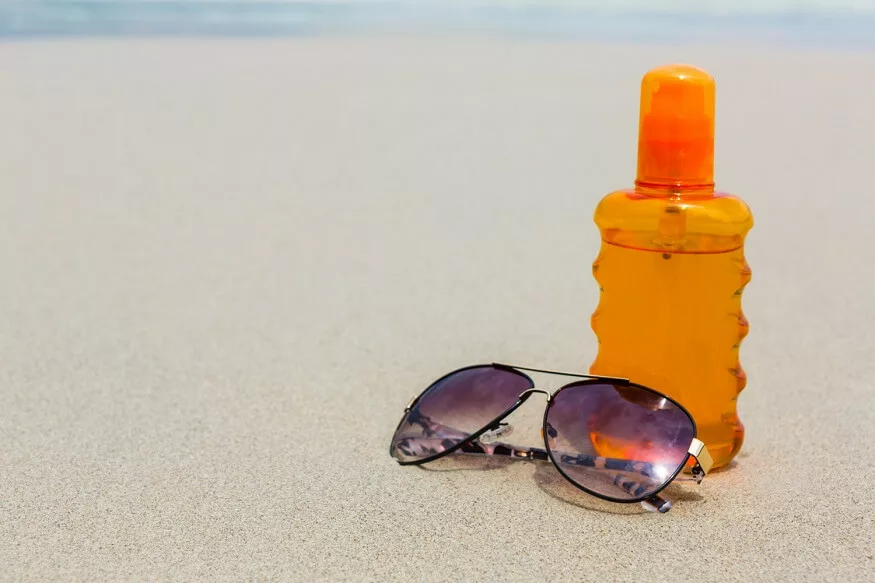Everyday substances we encounter can pose risks if mishandled or ingested. Accidental poisoning, whether from food or household items, is a constant concern. This article delves into the significance of poison prevention, provides insights into identifying hazardous chemicals and avoiding them, and offers essential information on addressing food poisoning treatment.
Understanding the Need for Prevention of Food Poisoning
Preventing poisoning is essential for protecting our health. Accidental poisonings, which frequently result from ignorance or carelessness, can surprise us. Understanding the value of prevention is crucial if we want to secure the security of our loved ones and ourselves.
Identifying Harmful Substances
The initial phase in preventing poisoning is to recognize poisonous substances. You must be aware of any possible risks in your environment if you want to effectively safeguard yourself and your family.
Identify and Avoid Harmful Substances:
- Household Chemicals: Store cleaning products, pesticides, and automotive fluids out of children’s reach.
- Medications: Follow dosage instructions and consult a healthcare professional if unsure.
- Plants: Know which plants can be poisonous in your environment.
- Food and Beverages: Practise safe food handling and check expiration dates.
- Insects and Animals: Be cautious with insects and seek medical help if bitten. Beware of disease-carrying wild animals.
Also Read: Recognising poisonous plants and animals
Avoiding Harmful Substances
Once you can recognise hazardous materials, the subsequent move involves staying away from them. Often, preventing unplanned poisonings can be as uncomplicated as implementing a handful of safety measures.
- Childproof Your Home: If you have young children, ensure that harmful substances are stored out of their reach. Use childproof locks on cabinets, and keep potentially dangerous items in locked containers.
- Read Labels: Always read and follow the labels on products, especially for medications and cleaning supplies. This is crucial to avoid misuse.
- Proper Medication Storage: Keep medications in their original containers and store them in a cool, dry place. Ensure that children cannot access them.
- Identify Poison Control Numbers: Be aware of the poison treatment control number in your area, and keep it readily available.
- Safe Food Handling: Preventing food poisoning is essential. Keep your kitchen clean, cook food thoroughly, and refrigerate perishable items promptly.
- Pest Control: Use pest control methods safely and as directed. Avoid overusing pesticides or insecticides in your home and garden.
Also Read: Food Allergies in Children: Identification, management, and potential long-term impacts
Prevention of Food Poisoning in Daily Life
Incorporating poison prevention into your daily routine is essential. It plays a pivotal role in shielding you and your family from avoidable health hazards. Now, let’s delve deeper into particular domains where the prevention of food poisoning proves to be of the utmost importance.
In the Kitchen
In the kitchen, follow these food safety rules:
- Hand Washing: Always wash hands for 20 seconds before handling food.
- Separation: Keep raw and cooked foods separate, using different utensils and cutting boards.
- Thorough Cooking: Cook meat, poultry, and seafood to recommended temperatures to kill harmful bacteria.
- Prompt Refrigeration: Refrigerate perishable items within two hours at 40°F (4°C) or below.
- Cleaning: Regularly clean and disinfect kitchen surfaces and tools to prevent bacteria spread.
In the Bathroom
The bathroom can also be a source of potential poisoning, especially if you have children. Take these precautions:
- Secure Medications: Keep medications out of reach of children, and always lock your medicine cabinet.
- Use Childproof Caps: If you have young children, opt for childproof caps on medication bottles.
- Dispose of Medications Properly: When you no longer need medications, dispose of them safely. Many pharmacies and law enforcement agencies offer drug take-back programs.
In the Garden
Gardening can be a relaxing and enjoyable activity, but it’s important to be cautious when handling plants and chemicals:
- Know Your Plants: Be aware of the plants in your garden, and research their potential toxicity. Teach your children to avoid eating any plants they find outdoors.
- Properly Store Garden Chemicals: Store Garden chemicals, such as fertilisers and pesticides, in a secure location away from children and pets.
In the Garage
The garage is often filled with chemicals and tools that can pose risks. Ensure safety with these steps:
- Marking of Containers: Ensure that chemical containers are visibly labelled and tightly sealed.
- Secure Storage: Keep chemicals in a well-ventilated space, far from open flames and heat sources.
- Appropriate Disposal of Hazardous Waste: Dispose of dangerous materials through local waste collection programs or designated facilities for hazardous waste.
Also Read: Food Poisoning in Children: Causes, Symptoms and Treatment
Poison Treatment
If poisoning occurs, remember these steps:
- Seek Assistance: Reach out to your local poison control centre or emergency services for poison treatment.
- Comply with Guidance: Follow the advice provided by the experts for the most suitable action.
- Avoid Inducing Vomiting: Usually, do not induce vomiting unless advised by a medical expert, as it can worsen some poisoning situations.
- Keep Records: If you know the source of poisoning, keep any containers, labels, or other evidence that may help identify the substance involved.
- Seek Medical Attention: If the poison control centre or emergency services advise you to seek medical attention, do so promptly.
- Prevent Further Exposure: Remove the individual from the source of poisoning and prevent further exposure if it can be done safely.
Preventing food poisoning often involves different steps than treating other types of poisoning. Here are specific guidelines for food poisoning treatment and prevention:
Food Poison Treatment
Food poisoning typically exhibits symptoms like nausea, vomiting, diarrhoea, and stomach cramps. It often resolves naturally without requiring medication. The key to food poisoning treatment is to maintain hydration by consuming clear fluids like water, electrolyte solutions, or broths. Adequate rest aids in recovery. Steer clear of things like alcohol, coffee, and hot, fatty foods that could irritate your stomach. Consult a medical expert for advice if symptoms last longer than expected, get worse, or if you experience severe symptoms like bloody diarrhoea, a high temperature, or dehydration symptoms.
Prevention of Food Poisoning
The best approach to food poisoning is prevention. Follow these recommendations to lower your chance of contracting foodborne illnesses:
- Wash Hands: Always wash your hands with soap and water before handling food.
- Clean Produce: Rinse fruits and vegetables thoroughly under running water before eating or cooking.
- Cook Thoroughly: Cook meat, poultry, and seafood to safe internal temperatures. Utilise a food thermometer for quality.
- Avoid Cross-Contamination: Keep raw meat, poultry, and seafood separate from meals that are ready to eat to prevent cross-contamination.
- Refrigerate Promptly: Refrigerate perishable foods within two hours of preparation to slow the growth of harmful bacteria.
- Check Expiration Dates: Regularly check the expiration dates on food items and dispose of anything that has expired.
- Be Cautious with Leftovers: Consume leftovers within a safe time frame, and reheat them to the proper temperature.
Also Read: How To Get Toddlers to Learn to Accept New Foods?
Poison prevention stands as a cornerstone of our well-being, offering a shield against unforeseen risks. Being able to recognize harmful substances and take preventative measures against them is important for keeping oneself and the people we care about. We can increase the result of our efforts to create a safer and healthier world by cooperating and sharing our knowledge. By putting poison avoidance first, we strengthen our road to a future that is not only healthier but also safer, guaranteeing us daily calmness.
A lot of substances that we come into contact with daily, of them might be dangerous if not handled or taken in carefully. Accidental poisoning is a constant risk, whether it be from food or household pollutants. At EuroSchool, we recognise the importance of poison prevention and are committed to equipping you with the knowledge and tools to navigate the world safely. Join us as we examine the vital components of recognizing and avoiding dangerous chemicals, with a particular focus on food poisoning treatment. For ourselves and our loved ones, we will ensure a better, safer future by working together.
Disclaimer: The information provided on this website is not a substitute for professional medical advice. EuroSchool encourages you to consult with a qualified healthcare professional for any health concerns you may have. The information on this website is not intended to diagnose, treat, cure, or prevent any disease.










